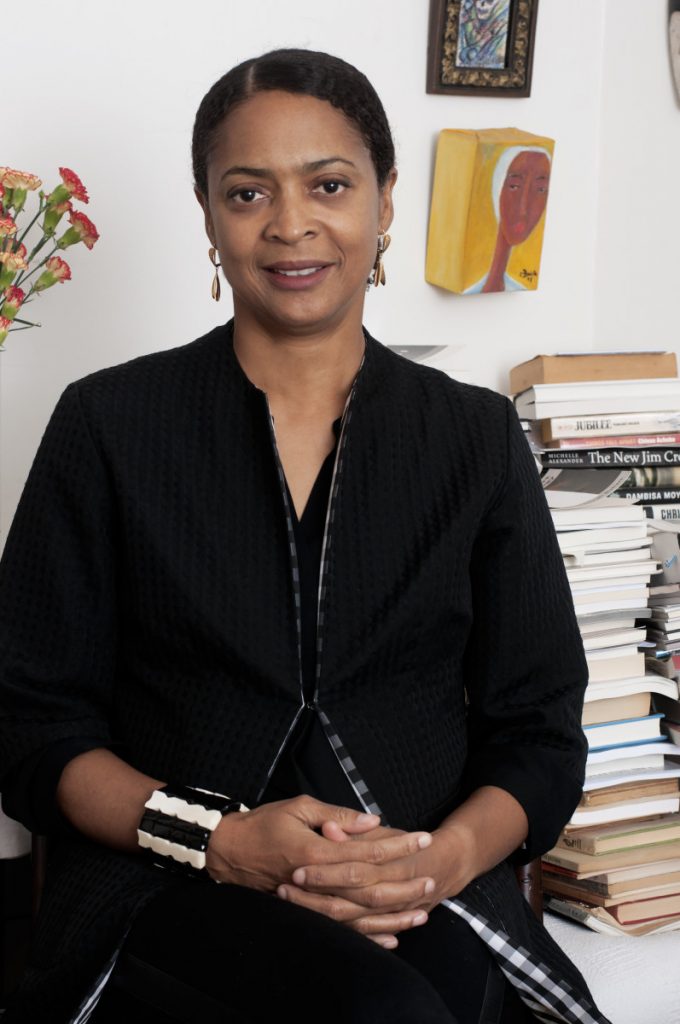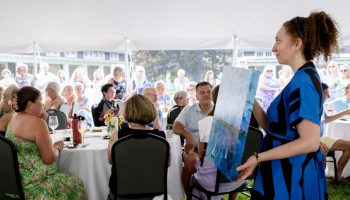
Kaitlyn Finchler
Staff writer
Learning is a two-way street. Professionals can learn from their students, and vice versa. In the world of poetry, there’s myriad topics, cultures and languages that can inform one another.
Chautauqua Writers’ Center Week Six poet-in-residence Danielle Legros Georges will give her lecture, “The Three Leaves from the Tree of Haitian Poetry,” at 3:30 p.m. today in the Hall of Philosophy for the African American Heritage House’s Chautauqua Speaker Series, instead of a traditional Brown Bag.
“I’m excited to speak about the work of two great Haitian poets who have made important contributions to Haitian letters,” she said. “They both wrote in Haiti and other parts of the world, and are part of a strong Haitian literary tradition that has been flourishing since 1804.”
Both poets are part of a broader Caribbean and African diasporic tradition and letters, she said. As Haiti is experiencing a political and humanitarian crisis, media outlets often report on the nation’s challenges, but not about Haiti’s writers.
“I thought this would be a good opportunity to add an understanding of Haiti beyond the moniker we hear in the news — the poorest nation in the Western hemisphere,” Georges said.
Chautauquans will leave with an idea of the original, Haitian literary tradition, she said, as well as an additional narrative connected to Haiti.
Georges is the author of several books of poetry, including The Dear Remote Nearness of You, which won the New England Poetry Club’s Sheila Margaret Motten Book Prize, and a professor of creative writing at Lesley University. As a professor and poet, the balance for her is a “life of art making” and each one feeds the other.
“I often learn a great deal from my students,” Georges said. “I tried to bring what I’m working through in my own heart to my students … so ideally, there’s a nice synergy between the two areas.”
She also works in translation, specifically from Haitian-French poet Ida Faubert, in her book Island Heart. As a biracial, bicultural and privileged woman, Faubert was a “complex literary figure” who didn’t “fit socially-prescribed categories for women in France or Haiti.”
“(In translating,) I tried to lift from what I understand to be the meaning and then later, this theory, spirit of the original,” Georges said. “I have to do a little bit of homework before that — the writer’s biography, a sense of context (and) sense of priorities.”
She then “renders the original text,” with all of the ideas, implications and connotations into English. Her inspiration for poetry is drawn from a long interest in history and social justice.
“Poetry, for me, is a way to confront and work with language as a system,” Georges said, “language as a carrier of ideas and meaning, and a way to think about how we think and find new ways to do it.”




